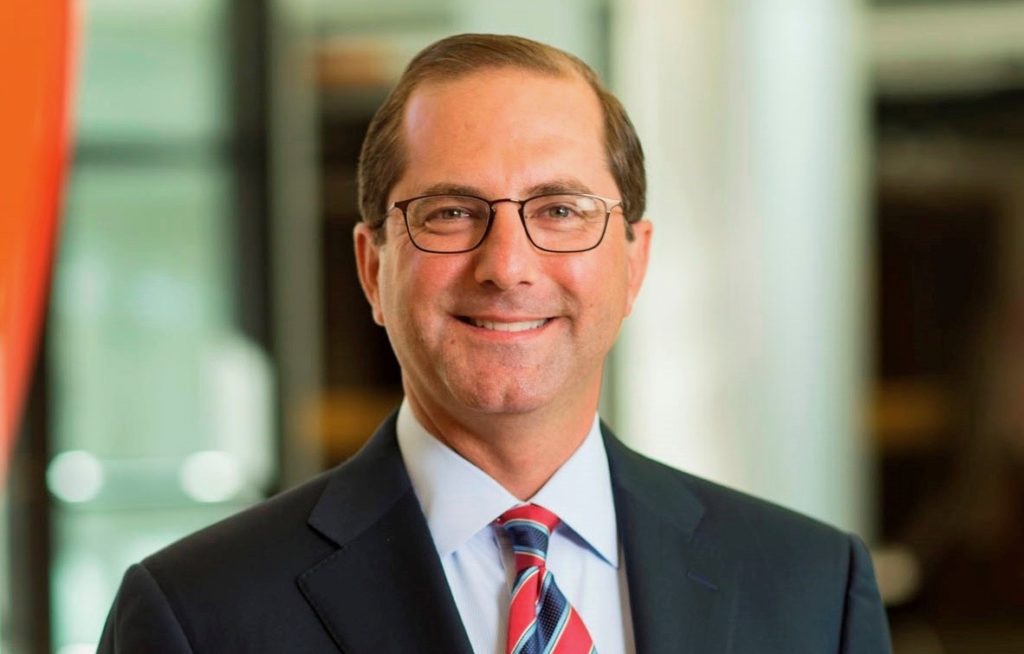If Health and Human Services secretary Alex Azar has his way, the health care consumer of the future will select providers the way they currently decide where to eat or which knockoff iPhone charger to buy.
“Imagine a day when health care delivery in the United States functions the way other parts of our economy do,” Azar told the Federation of American Hospitals in a speech in Washington on Monday. “We as patients would pick providers with the level of information we have when using Amazon or Yelp. Consumers would drive quality and cost-effectiveness with information, competition and genuine choice.”
Competition and choice were two key themes of Azar’s speech, which laid out his vision for the future of health care — and also challenged the government to take sweeping action regarding new value-based payment models.
“I don’t intend to spend the next several years tinkering with how to build the very best joint-replacement bundle — we want to look at bold measures that will fundamentally reorient how Medicare and Medicaid pay for care, and create a true competitive playing field where value is rewarded handsomely,” Azar said.
The new secretary’s unabashed embrace of value-based payment models contrasts from his predecessor, Tom Price. The short-lived HHS chief — who resigned last year amid a scandal involving taxpayer-funded travel on private jets — was a noted skeptic of mandatory payment models who oversaw the rollback of multiple Centers for Medicare & Medicaid Services (CMS) initiatives, including the Comprehensive Care for Joint Replacement (CJR) program.
Azar expressed his support for the Center for Medicare and Medicaid Innovation (CMMI), which allows providers and the government to test various new payment models and plans, though he criticized how accountable care organizations have been handled in the past.
“Providers were not given new meaningful space to experiment — such as the arrangements they needed to truly take on the risk of a patient’s outcomes,” he said. “Meanwhile, they were allowed to share in modest cost savings, but not asked to accept responsibility for cost overruns.”
His plan for fostering large-scale change involves cutting government regulations, reducing paperwork and allowing the free market to create solutions. But he also emphasized the important role Medicare and Medicaid play in the overall landscape as agents of change.
“Only Medicare and Medicaid have the heft, the market concentration to drive this kind of change, to be a first mover,” Azar said. “In addition, as we all know, commercial payers mimic the fee-for-service payment systems that come out of Medicare. If we don’t change those, nothing will change.”
Written by Alex Spanko



